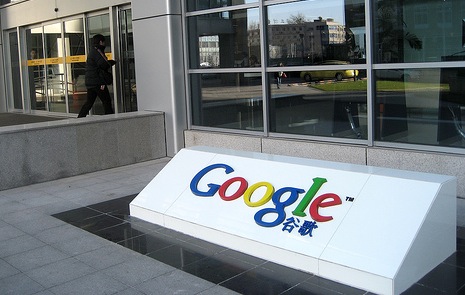Google: Profit or Principle?

The debate on Google's motives for action on China in the past few days have been illuminating on the state of business ethics today. Much has been speculated about Google's realmotives, variously:
- Google have failed to gain traction in the market place and so the crisis is a smoke screen for the retreat
- Google can't tolerate a strategic threat to its security in the cloud and so has chosen a show down even if it means it must exit the market as a result
- Google is looking to curry favour with the regulators in the EU and US by taking on the Chinese government on this issue
- Google is exercising its moral values & ethics in acting to defend against the attack on the privacy of human rights activists
So take your pick. In my own commentary I may have even contributed unwittingly to this polarization of thought myself or at least the Atlantic seems to think so (my emphasis):
ZDNet's James Farrar likewise prefers to think that Google's is a "principled stand ... such bravery is sadly all too rare."
In truth there should be no trade here. It is profit with principle not profit or principle.
Universality is an important principle of ethics and Tech Crunch's Sarah Lacy walked straight into relativism trap in her analysis (my emphasis):
China is too big of a market to ignore, but getting as far as they have has come at a steep price to their reputation and international (read: Western) integrity.
Sarah's got this wrong - the principles of human rights are universal and not relative to 'western integrity'. Human Rights are core to the UN Charter of which China is a Security Council member. In 1948 the Universal Declaration of Human Rights was unanimously passed by the UN General Assembly of which China is a member. This declaration was drawn up after the horrors of world war II and it bridgesand makes inseverable ideas of both collective and individual rights. (I highly recommend a read of the Universal Declaration, its surprisingly far reaching and is a source for most human rights legal instruments.) As a signatory China has several universal obligations relevant to the Google case including:
Article 12.
- No one shall be subjected to arbitrary interference with his privacy, family, home or correspondence, nor to attacks upon his honour and reputation. Everyone has the right to the protection of the law against such interference or attacks.
Article 18.
- Everyone has the right to freedom of thought, conscience and religion; this right includes freedom to change his religion or belief, and freedom, either alone or in community with others and in public or private, to manifest his religion or belief in teaching, practice, worship and observance.
Article 19.
- Everyone has the right to freedom of opinion and expression; this right includes freedom to hold opinions without interference and to seek, receive and impart information and ideas through any media and regardless of frontiers.
Article 20.
- (1) Everyone has the right to freedom of peaceful assembly and association.
- (2) No one may be compelled to belong to an association.
Corporations too have responsibilities to uphold these rights as made clear in the preamble (my emphasis):
to the end that every individual and every organ of society, keeping this Declaration constantly in mind, shall strive by teaching and education to promote respect for these rights and freedoms and by progressive measures, national and international, to secure their universal and effective recognition and observance,
Indeed, the UN Secretary General recently appointed John Ruggie from Harvard's JFK School of Government as his special rapporteur on business and human rights and through the UN Human Rights Council John has published a seminal paper (Protect, Respect and Remedy: A Framework for Business and Human Rights) which provides guidance on how global businesses should approach human rights. No doubt, countless executives in the Valley & Redmond are furiously thumbing through and boning up on it now.
In my opinion ZDNet bloggers have provided some of the best analysis on the Google China stand off and you can find it all here.
